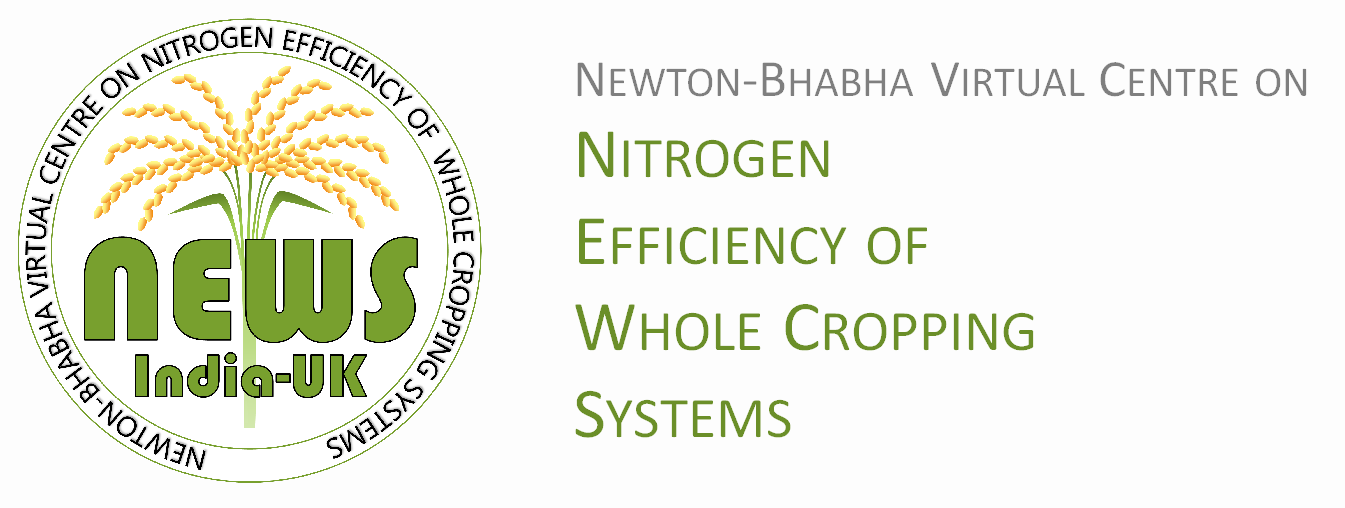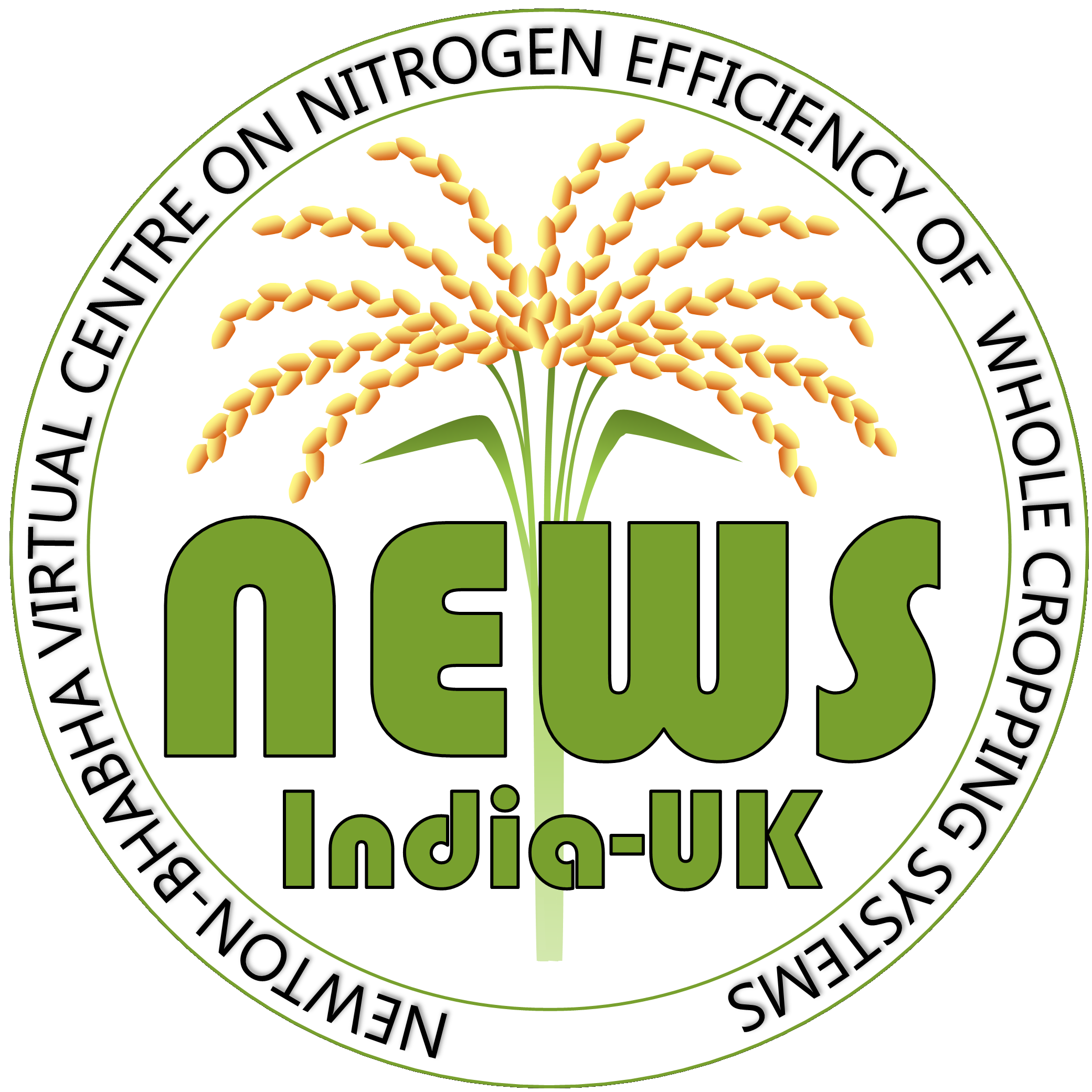A meeting with Progressive farmers of Mumtazpur, Lokra village, Haryana
On the 6th October, Prof. Mark Sutton, Prof. Jo Smith and myself travelled to Lokra village in Haryana, with our colleagues from Indian Agricultural Research Institute (IARI) in New Delhi, Dr. Sanjoy Bandyopadhyay and Dr. Arti Bhatia. We were privileged to meet the very enthusiastic and progressive farmers of the Mumtazpur farmers group. Dr. Sanjoy and Dr. Arti work with these farmers to develop climate smart agricultural techniques which aim to improve the farmers’ health and income.
A group discussion with the farmers’ organization was organized by Dr. Sanjoy where he introduced us to the farmers. Mr. Tilshi Kumar, who represents a group of 8-10 villages, described the aims of the organization and discussed the challenges they face. They work closely with IARI to develop new low cost agriculture technologies and want to ensure high quality agriculture products. They have decided to practice organic farming because they get good prices for organic produce and believe that it is beneficial to health.
Discussion with the farmers’ organization of Mumtazpur
For organic farming, livestock manure is an important source of nutrients for crops, but the farmers said it is very expensive and time-consuming to keep livestock – most farmers plan to reduce the number of livestock they keep. The livestock are mainly managed by the women, whereas men are more involved with developing the new technologies; they give guidance to the women on the work needed to use these technologies. Currently the farmers compost animal dung and use it as organic fertilizer. Prof. Mark commended the composting of dung, but suggested that because urine is nitrogen rich it would be very beneficial to also use urine as fertilizer. Prof. Jo looked through a soil health card provided for one of the farms and suggested the soil organic matter content of the soil was low compared to that in many other areas of the world; she agreed that the best way to increase soil organic matter would be to apply manure, compost or green manure. To have a sustainable agriculture production system, it is very important to maintain the soil organic matter content as well as applying nitrogen.
Some farmers in Mumtazpur are very aware of the situation and are trying to use all of the organic resources available to them to improve the soil. Mr. Ashok Kumar is one such progressive farmer, and has been awarded a national prize for his organic farming practices, using both dung and urine as fertilizers. He prepares a liquid fertilizer, known as “Jevamrit”, using urine, making use of this nitrogen source that would otherwise be wasted. Mr. Karan Kumar, another progressive farmer lives near his fields where he practices modern organic agriculture technologies. Both Mr. Ashok Kumar and Mr. Karan Kumar are currently working with Dr. Sanjoy and Dr. Arti on development of a new composting method that would minimise nitrogen loss to atmosphere and produce nutrient rich compost.
Collection of urine in household of Mr. Ashok Kumar
Composting bag at house of Mr. Karan Singh
It was a very good experience to meet these forward thinking farmers, discuss their achievements and problems, and to hear about the work that Dr. Sanjoy and Dr. Arti are doing with them. It would be an honour to work with them in future on the new technologies they are developing to find solutions that could easily be adopted to get maximum benefit. In particular, questions arise over whether it is better (in terms of carbon, nutrients, energy, labour and income) to keep livestock in the farming system, and how urine can be captured without too much extra work to provide a source of nitrogen and reduce emissions of ammonia.
Dr. Dali Nayak


